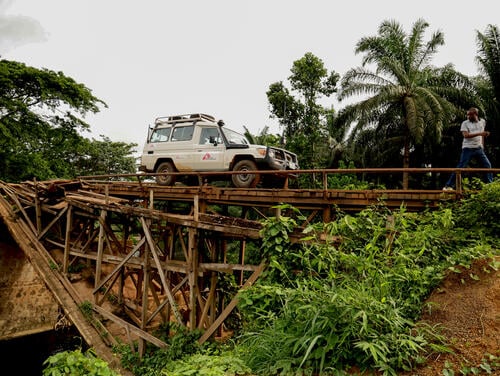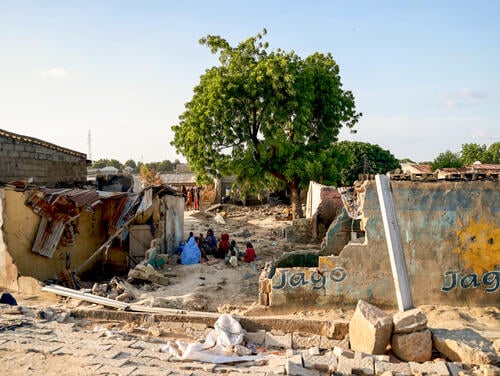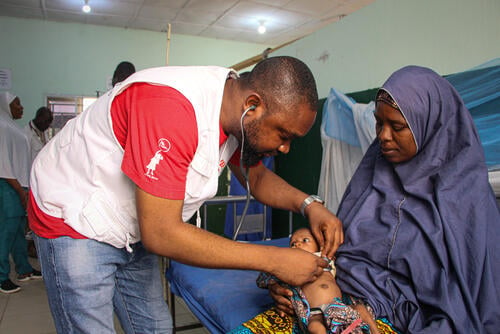Come rain or shine, Patrick A. Njok, has been ensuring patients in need of essential medical care get to the hospital in time for two years as a driver with Médecins Sans Frontières (MSF). Patrick manoeuvres across remote and rural terrain in the Cross River region of southern Nigeria, an area where many communities, including an estimated 15,000 refugees from Cameroon, do not have clean water or phone service.
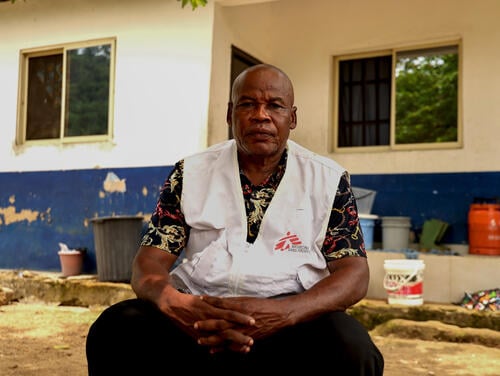
While people can receive basic healthcare at MSF’s facilities in the area, more serious cases need to be referred to hospitals. That is where Patrick comes in, bringing patients to hospital no matter the obstacles on the road. He shares four challenges he often overcomes on his journeys.
1. Fallen trees
When rainy season comes, there are windstorms, and these knock down the trees. It can happen suddenly, even when you are already out on the road. The rain can come at any time.
If you don’t take a machete, a cutlass, or a chainsaw with you, you can end up getting blocked by the fallen trees until the villagers can help you remove them. This can seriously delay patients getting to hospitals, which can have potentially life-threatening consequences.
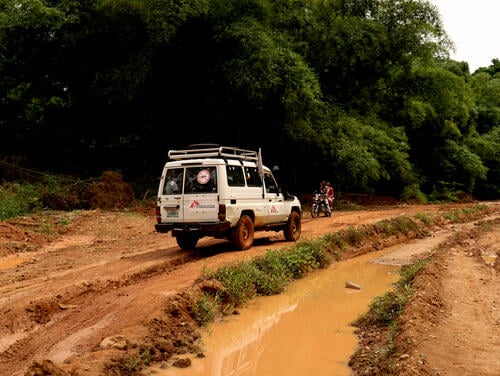
2. Muddy roads
From May to October, when it is raining very heavily, the soil texture is very difficult to drive on. Hilly, muddy and slippery. I know some of my colleagues who have spent almost half of the day trying to dig out the car when we get stuck.
Even the off-road vehicles we use sometimes struggle in the mud and you become stuck, wheels spinning but not moving anywhere! We have to make sure all cars come with all-terrain tires and an electrical winch so that the driver can get himself out.
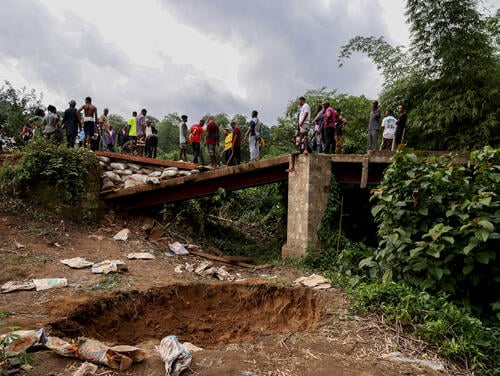
3. Broken bridges
Just today, two bridges have collapsed. These bridges were constructed in 1973, when I was still in primary school. To this date, those bridges are still the same ones we are driving over now.
These are simple wooden bridges, and you have vehicles that are crossing with a load of more than 30 tonnes. Sometimes when we drive over these delicate bridges, all the passengers have to get out and walk across to reduce weight.”
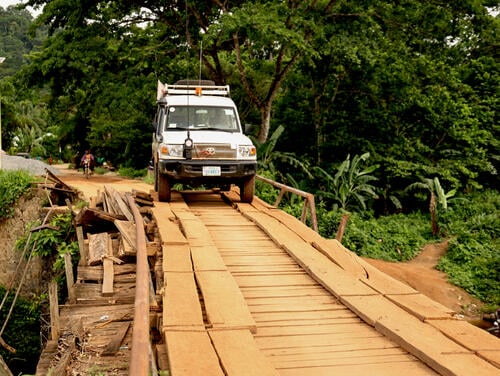
4. High cost of transportation
In the rainy season, the price of taxis and transportation goes up. It can be around four times more. If people don’t come to the clinic, then we cannot refer them, and I cannot drive them to other hospitals.
Drivers are often the number one advertiser for MSF, the vehicle is the first thing people see. I would encourage people to go to the MSF clinic. If you are sick, you come to the facility and MSF will treat you.



